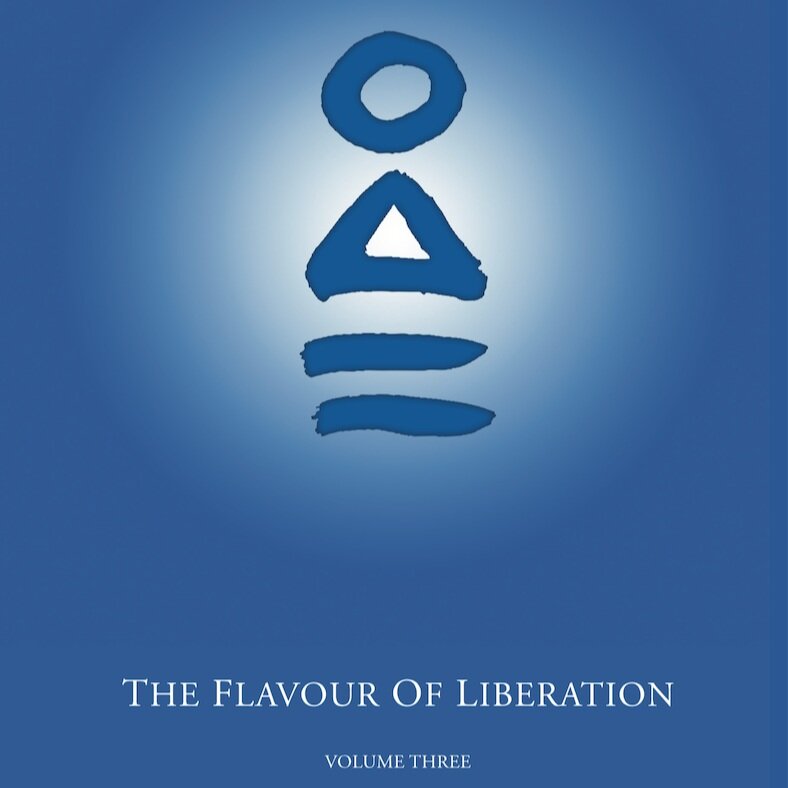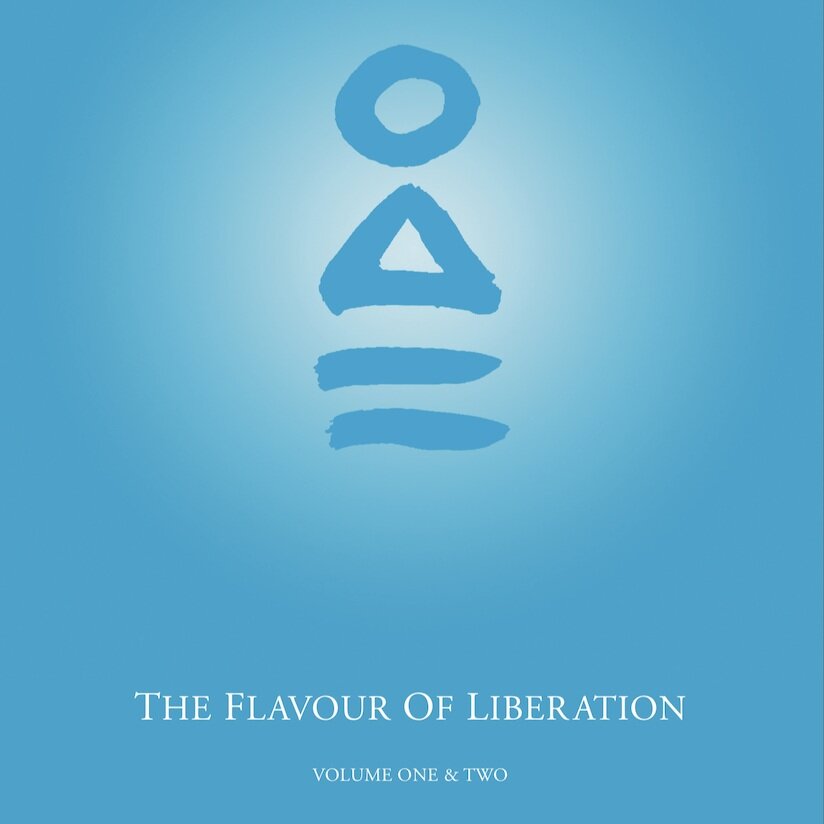Living Dharma
Available on all Amazon Marketplaces
Following on from the first three volumes in the Flavour of Liberation Series, after many years of meditation in retreat and teaching, Burgs presents Living Dharma. This profound work investigates reality itself as Dharma and as such, a living truth, intelligent and alive. The essence of these teachings are expressed and translated into a modern context for a modern audience.
Although Living Dharma is Volume 4 of the FoL series it does not require these books to have been read, or even for the reader to have any experience of meditation at all. It is not a book on the mechanics of meditation, in fact, it represents the heart essence of the Buddha’s teaching brought to life, and demonstrates that the truths that the Buddha came to see are universal living principles that are as relevant today in our modern society as they were 2600 years ago.
This is part Four in the series “Flavour of Liberation”
Please note that although part of the Flavour of Liberation series, this book stands alone and it is not necessary to have read previous volumes to engage with this text.
Flavour of Liberation Volume Four - Table of Contents
VOLUME FOUR
PART I
The First Noble Truth: The Truth Of Suffering
The Appearance Of Things – Is Life Really Suffering?
1. Twenty-Five Centuries On: A Living Dharma
2. Was the Buddha Right, is Life Just Suffering?
3. Life is Consciousness, Consciousness is Life
4. The Loss of Consciousness in a Life Without Spiritual Context
PART II
The Second Noble Truth: The Cause Of Suffering
Beyond Appearances – Why Are We Suffering?
5. Our Rite of Passage
6. A Look at Karma and its Working
7. Numbness is the Karmic Result of Ignorance
8. Erasing the Collective Consciousness
PART III
The Third Noble Truth: The Cessation Of Suffering
Beyond Suffering – The Experience Of Awakening
9. The Subtle Material World
10. The Cessation of Suffering
11. Beyond the Veil of Self to a Unified Experience
12. There’s Nothing Lacking
PART IV
The Fourth Noble Truth:
The Path That Leads To The Cessation Of Suffering
From Bondage To Freedom – The Journey Home
13. The Quality of Your Life Reflects the Quality of Your Mind
14. One Life
15. Awakening in an Age of Degeneration
16. Three Paths Out of Suffering
17. The Boundless Power of Life
18. The Wish Fulfilling Jewel
Sample Text - Ch.1 Twenty-Five Centuries On: A Living Dharma
Reflecting upon the direction of his life and the nature of suffering, the Buddha looked out at the world from his life of privilege and luxury twenty-five centuries ago, and in spite of having everything a young man could possibly dream of, felt a sense of dismay arise within him. He made the reflection that this life is fraught with danger, and humans are inclined to bring themselves to suffering, even when they are blessed with the highest of good fortune.
This was not a man experiencing hardship and misfortune. He was a young prince, physically strong and virile, with all of life’s pleasures to hand. He was not bemoaning his lot when he made the reflection that this life is suffering, he was simply witnessing the deep and ingrained tendency human beings have to bring suffering to themselves and others. And in witnessing this fact he was so moved by it that he set forth from his life of privilege in search of a way to the cessation of suffering.
The realisations that he came to in his epic and heroic quest for the cessation of suffering, and the path that he taught that leads to that goal have, over the centuries that followed, become one of the most profound and widely followed set of spiritual teachings in all of history. Beyond being simply a philosophical system, it has for countless generations pointed a way that others have embarked upon, and lived by, which over time has led all of those who have completed this path to not only reach the same realisation as the Buddha did, but to experience for themselves the cessation of suffering.
The Buddha’s appearance in the world, although of enormous significance, didn’t change the way of things. Today, two and a half millennia later, it is still the same world that we live in. Folk are still prone to create suffering for themselves and others, and the route by which this suffering comes to an end remains the same.
Dharma is a word from the ancient Sanskrit language of India which means truth, or ‘way of things.’ It does not refer to a philosophical system but is instead an expression of living principles governing life. The Buddha’s realisation of the cessation of suffering marks nothing more than the coming into alignment with, and the gradual ending of conflict with, these principles that govern our lives. When we look out at the world today we can see now, as has always been the case, this Living Dharma expressing itself in all things everywhere.
The Dharma has encountered both support and scrutiny over the time that followed the Buddha’s eighty years upon this earth. But the Dharma is a living truth, it is there to be seen in the world around us, in each and every moment. If we are to understand the Dharma we have to do as the Buddha did and look to the world and us, its inhabitants, to observe its workings and see for ourselves the path that leads out of suffering.
This book has been called Living Dharma for that very reason. The Dharma is alive, it is within us, and within all things, always and everywhere. It is just waiting for us to clear the dust from our eyes so that we might see it. The Buddha claimed that one who sees life as it is, will see the Dharma, and one who sees the Dharma will see life as it is.
The Buddha’s Four Noble Truths, are not complex and hard to grasp. Together they explain the underlying intelligence behind life, the processes and conditions by which it expresses itself as suffering, the conditions under which that suffering comes to an end, and the process by which those conditions for the cessation of suffering gradually come about. Intellectually we can all make sense of them. For as long as there is no end to what we would do in the pursuit of our desires, then there is no end to the suffering we would create in that pursuit.
Knowledge alone may prompt us to reflect, and sometimes deeply so, but those deeply instinctual drives of ours, as well as the ones we have inherited and developed for ourselves, have a powerful and inexorable pull to them, and turning them around to the point where there would no longer be a willingness to harm either ourselves or others in the pursuit of such desires will take more tenacity, humility and determination than we might initially feel we want to put forth.
But we are, in the final analysis, still the most intelligent form of life on this planet. While blessed with the capacity to bend it to our will, we likewise have the capacity to recognise when this is no longer appropriate, acceptable or even possible. We live in the same world, governed by the same natural laws as the one the Buddha looked out upon.
His world was not in nearly as much peril as the one we today look out upon. He himself said that the Dharma would only flourish for as long as we do not become so blinded by dust in our eyes that we cannot see the truth when we look upon it, nor hear it when it is spoken.
The Buddha said, there are four types of beings on this planet. There are those in the darkness moving towards the darkness, there are those in the darkness moving towards the light. There are those in the light moving towards the darkness, and those in the light moving towards the light. What he was saying is that, good fortune or misfortune notwithstanding, the only thing that really matters is the direction that we are heading in from where we are now.
So what direction are we heading in? It is an important question to be asking ourselves now. There is an intelligence within all of us that is capable of making sense of our predicament. At that level it is plain to see that for all the physical hardship that exists in this world, there are countless unfortunate folk who, although challenged, meet their challenges daily and find grace within their lives. Equally, there are countless fortunate folk who, blessed with the most extraordinary good fortune, are still deeply miserable and dissatisfied. It is clearly the case that it is not so much what we experience in life that determines our happiness, but how we meet it.
We are all intelligent enough to see what is happening to us, if we are willing to pay a little attention. But our welfare in the future will not be built on understanding alone, it will be built on conduct and choices. There is a storm blowing upon the world and there is much dust in the air. Perhaps it is time for us to revisit the wisdom that the Buddha shared with us and see if we can understand, each of us, what it was he was really trying to tell us.
This book is offered not as a social commentary but as a reflection upon how the Living Dharma is expressed and displayed in our lives, so that we might take the liberating wisdom of the Buddha off the page and into our hearts and use it as a road map for our own way home.
★★★★★
“I've been studying meditation for over 25 years and it was only when I came into contact with these teachings that the jigsaw pieces started falling into place.”
Andyzz









